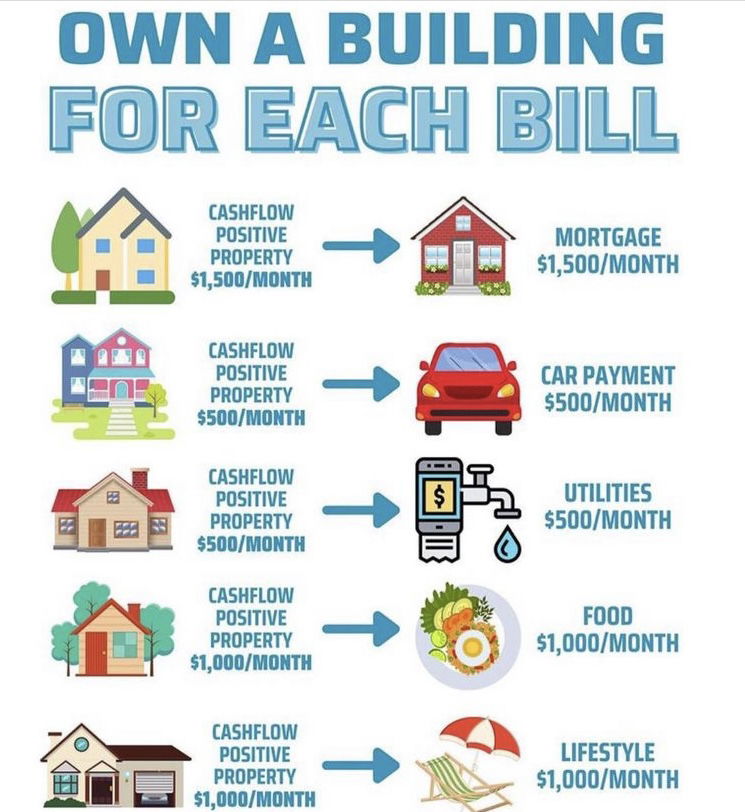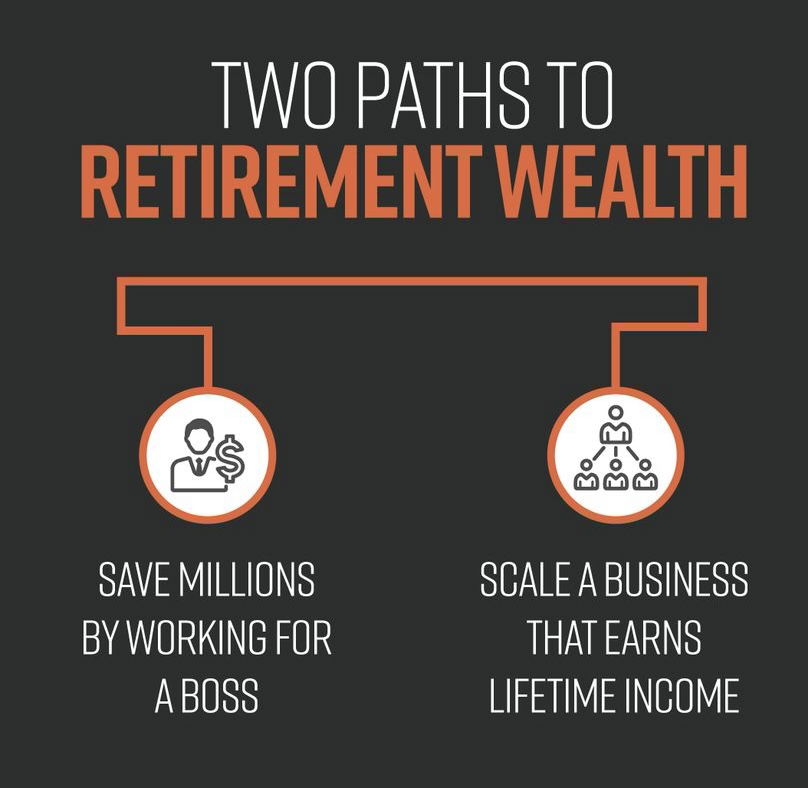Living a better Lifestyle Real Estate

Unlocking Wealth Through Passive Income in Real Estate:
In the realm of wealth creation, the generation of passive income is a cornerstone, and real estate stands as an eminent fortress in this pursuit. Widely acknowledged as a reliable and steady source of passive income, real estate investments offer a myriad of opportunities for investors to cultivate financial stability and prosperity.Passive income, in the context of real estate, is primarily derived from consistent cash flows produced by various investment strategies, with rentals being a prominent avenue. Investors strategically select properties with the aim of creating a resilient income stream that flows effortlessly, requiring minimal day-to-day involvement.The allure of real estate as a passive income generator lies in its potential for long-term sustainability. Unlike more volatile investment options, real estate tends to weather economic fluctuations, providing investors with a stable and predictable source of income over time.Furthermore, the strategic deployment of investment capital in real estate can be tailored to optimize passive income. This may involve diversifying property types, geographic locations, or employing sophisticated financial instruments to enhance cash flow and mitigate risks.In the pursuit of passive income through real estate, investors meticulously analyze market trends, assess property values, and scrutinize the potential for rental yield. This diligent approach allows them to identify properties that not only appreciate in value over time but also generate reliable income streams, contributing to a robust financial portfolio.In essence, the generation of passive income through real estate is a finely tuned art that requires a blend of strategic foresight, market acumen, and a comprehensive understanding of investment dynamics. As investors navigate the nuances of property selection, financing structures, and market conditions, they sculpt a path towards financial freedom and sustainable wealth accumulation. In the world of real estate, passive income isn't just a financial outcome; it's a testament to astute investment prowess and a gateway to enduring financial success.

Strategic Wealth Growth: Portfolio Diversification in Real Estate Investment:
Diversification, a fundamental principle in the art of wealth management, is a strategy that astute investors deploy to mitigate risks and fortify their financial portfolios. In the intricate world of real estate, portfolio diversification emerges as a powerful tool, offering a unique blend of tangibility and stability, distinguishing it from other investment avenues.Investors, recognizing the inherent volatility in financial markets, diligently seek to distribute their investments across a spectrum of assets. This diversified approach serves as a risk mitigation strategy, shielding investors from the impact of adverse market movements in any particular sector.In the context of real estate, portfolio diversification unfolds as a deliberate allocation of resources across a varied range of properties or real estate investment vehicles. This may encompass residential, commercial, industrial, or even specialized niches like hospitality or healthcare real estate. Each property type responds differently to market conditions, thereby contributing distinctively to the overall resilience of the investment portfolio.Real estate, as an asset class, provides a tangible alternative, standing in stark contrast to the intangible nature of stocks or bonds. Physical properties, whether residential or commercial, exhibit intrinsic value and can serve as a resilient anchor even in tumultuous economic climates.Moreover, stability becomes a defining characteristic of real estate investment in the diversification strategy. While financial markets may experience volatility and unpredictable fluctuations, real estate values tend to be more resistant to rapid and drastic changes. This inherent stability enhances the overall robustness of the investment portfolio.In the pursuit of diversification through real estate, investors meticulously evaluate factors such as location, property type, and market trends. By strategically diversifying across these parameters, investors not only spread risk but also position themselves to capitalize on diverse market opportunities.As investors navigate the complex landscape of portfolio diversification in real estate, they forge a path towards not only risk mitigation but also the creation of a resilient and adaptable financial portfolio. In essence, the strategic integration of real estate assets enriches the investor's toolkit, providing a dynamic and stable foundation for sustained wealth growth in the ever-evolving realm of investments.

Crafting a Vision for Long-Term Wealth Growth Through Real Estate:
In the intricate tapestry of wealth creation, the sagacious real estate investor discerns the unparalleled allure of long-term growth — a journey where property values act as the cornerstone, appreciating over time and etching an indelible path towards enduring prosperity.
Appreciation Dynamics:
The intrinsic nature of real estate lies in its potential for appreciation, a phenomenon where property values ascend steadily over the years. This upward trajectory is underpinned by a confluence of factors, including economic growth, increasing demand for desirable locations, and the finite nature of land resources. As an expert in the field, I recognize that this appreciation dynamic is not merely a market trend; it's the heartbeat of long-term wealth creation.
The Catalyst of Time:
Long-term wealth growth in real estate is intricately entwined with the dimension of time. Unlike more volatile investment vehicles, the patient investor in real estate harnesses the power of time as a catalyst for value escalation. Properties, carefully selected for their intrinsic qualities and strategic locations, become not just assets but conduits through which wealth compounds and solidifies.
Strategic Property Selection:
In this landscape of long-term wealth growth, investors embark on a journey of strategic property selection. Astute investors seek properties not only for their immediate returns but with a discerning eye on their potential for sustained appreciation. This involves a meticulous analysis of market trends, neighborhood development prospects, and the foresight to identify emerging areas poised for growth.
Diversification as a Wealth Amplifier:
Diversifying real estate investments becomes a key tenet in the pursuit of long-term wealth growth. A well-rounded portfolio, comprising diverse property types and locations, acts as a wealth amplifier. Residential, commercial, and niche real estate assets, when strategically integrated, create a resilient and dynamic investment mosaic that weathers the tests of time.
Market Intelligence and Adaptability:
As an expert real estate investor, staying attuned to market intelligence is paramount. Trends evolve, demographics shift, and economic landscapes transform. In this dynamic milieu, the ability to adapt investment strategies based on emerging opportunities and challenges is a hallmark of a visionary investor committed to long-term wealth growth.

Unleashing Financial Freedom through Real Estate Mastery:
In the realm of real estate investment, the synergy of flexibility and financial freedom constitutes a dynamic force that transcends mere financial gains. It's a strategic pathway that empowers investors to orchestrate their financial destiny, liberating them from the shackles of immediate needs and aligning their decisions with profound personal goals.
Strategic Asset Allocation:
One of the keystones of achieving financial freedom through real estate is strategic asset allocation. Successful investors meticulously curate a portfolio that not only appreciates over time but is also diversified across various property types and locations. This diversity acts as a financial safety net, providing flexibility to navigate through market fluctuations while preserving the potential for substantial long-term gains.
Passive Income Streams:
Real estate's unique ability to generate passive income becomes a linchpin in the quest for financial freedom. Investors strategically deploy resources in income-generating properties, ensuring a steady stream of revenue that mitigates reliance on traditional employment. This passive income not only provides a cushion against financial uncertainties but also fosters the freedom to explore new ventures and personal passions.
Leverage as a Financial Tool:
The judicious use of leverage becomes a hallmark of financial freedom in real estate. Investors adept at leveraging their resources can amplify their investment potential, utilizing borrowed capital to acquire properties that might be otherwise financially prohibitive. This financial tool enhances flexibility, allowing investors to capitalize on lucrative opportunities and optimize their portfolio for maximum returns.
Freedom from Traditional Constraints:
Unlike more traditional forms of investment, real estate liberates investors from the constraints of daily market fluctuations. While financial markets may be subject to volatility, real estate investments, when well-managed, exhibit a more stable and predictable trajectory. This stability offers investors the freedom to make decisions based on long-term visions rather than reacting to short-term financial exigencies.
Alignment with Personal Aspirations:
Financial freedom through real estate allows investors to align their decisions with personal aspirations. Whether it's pursuing philanthropic endeavors, dedicating time to personal development, or indulging in life's enriching experiences, real estate provides the means to transcend the limitations imposed by immediate financial needs.

Crafting Your Lifestyle Oasis:
Real Estate Tailored to Personal Desires:
In the realm of real estate investment, the discerning investor understands that it extends beyond mere financial transactions; it's a conduit to crafting a desired lifestyle. This facet of real estate is an artful dance between property selection and personal aspirations, where investors seek not just assets, but a canvas upon which their ideal lifestyle can unfurl.
Personalized Property Pursuit:
For many investors, real estate is not solely about returns on investment; it's about creating a haven that aligns seamlessly with their desired lifestyle. This entails a meticulous process of personalized property pursuit, where investors seek residences that resonate with their vision of an ideal living space. Whether it's the rhythmic symphony of waves near the beach, the serene tranquility of a rural escape, or the vibrant pulse of a bustling city, the quest is to find a property that encapsulates the essence of their lifestyle dreams.
Beachside Bliss:
Investors with a penchant for the soothing embrace of the sea often gravitate towards beachside properties. The allure lies not only in the scenic beauty but in the lifestyle it affords – morning strolls along the shoreline, the soundtrack of crashing waves, and a pervasive sense of tranquility. Beachside living becomes a tangible manifestation of the desired lifestyle, blending relaxation with the luxury of nature's proximity.
Rural Retreats:
Quiet rural areas beckon to those seeking a retreat from the urban hustle. Investors with a yearning for wide-open spaces and a slower pace of life often find solace in properties nestled amidst nature. These rural retreats become not just residences but gateways to a lifestyle characterized by fresh air, expansive landscapes, and a connection to the unhurried rhythms of the countryside
City Vibrancy:
On the flip side, the vibrant energy of city living appeals to investors with a penchant for urban excitement. Investing in properties within dynamic city centers becomes a deliberate choice to be immersed in cultural experiences, diverse culinary offerings, and the pulsating heartbeat of metropolitan life. The city itself becomes an extension of the desired lifestyle, offering a plethora of activities and conveniences at one's doorstep.
Tailoring Investments to Lifestyle Aspirations:
As an expert in real estate, I guide investors to view their portfolios not just as financial instruments but as enablers of a desired lifestyle. The art lies in aligning investments with lifestyle aspirations, ensuring that each property acquired is not just a residence but a facilitator of the envisioned way of life. This approach transcends the transactional nature of real estate, transforming it into a vehicle for the realization of personal dreams and fulfillment.

Real Estate with Purpose:
Nurturing Social and Environmental Impact for Lasting Rewards
In the dynamic landscape of real estate investment, a profound paradigm shift is unfolding—one where savvy investors recognize the multifaceted benefits of not only reaping financial returns but also contributing to positive societal and environmental change. The strategic interplay of social and environmental impact has become a guiding principle, enriching investors with a host of rewards beyond monetary gains.
Sustainable Development:
A Catalyst for Success:
Investors embracing sustainable development initiatives are not only fostering positive change but are positioning themselves for long-term success. Sustainable projects, with a keen focus on eco-friendly practices, resource efficiency, and community well-being, often enjoy enhanced market appeal. They become symbols of responsible development, attracting environmentally conscious tenants and buyers, thereby bolstering property demand and value.
Revitalizing Urban Areas:
Community Resurgence and Financial Growth:
The revitalization of urban areas is not merely a philanthropic endeavor; it's a strategic investment in community resurgence with tangible financial benefits. Properties in revitalized urban zones often experience significant appreciation as these areas become more desirable for businesses, residents, and investors alike. The positive ripple effect on property values and market demand can yield substantial financial rewards.
Community-Centric Investments:
Sustaining Growth Through Community Prosperity:
Investing in community-centric projects, such as affordable housing or educational facilities, not only fosters a sense of social responsibility but can also contribute to sustained financial growth. Vibrant communities attract businesses, residents, and investors, creating a positive feedback loop that enhances property values and market stability over the long term.\
Environmental Stewardship:
A Boon for Efficiency and Cost Savings:
Real estate investors committed to environmental stewardship often find that their initiatives lead to increased energy efficiency and cost savings. Incorporating green technologies and sustainable practices not only benefits the environment but also reduces operational costs, enhancing the overall financial performance of a property.
Measuring Success in Impact and Returns:
A Holistic Approach:
In the realm of social and environmental impact, success is measured not only in financial returns but also in the positive changes brought to communities and the environment. Investors find that their commitment to purpose-driven real estate enhances their brand reputation, attracts like-minded partners, and fosters a sense of pride among stakeholders—all of which contribute to sustained success in the industry.

Empowering Financial Autonomy:
The Unparalleled Control of Real Estate Investment
In the intricate tapestry of investment landscapes, real estate stands as a bastion of unparalleled control, endowing investors with a level of autonomy that transcends traditional financial instruments. As an expert in real estate, I can attest to the myriad benefits—both personal and financial—that manifest when investors wield this unique power over their assets, especially in the context of tax advantages.
Control Over Asset Decisions:
Real estate investment provides a distinct advantage in terms of decision-making autonomy. Unlike certain financial instruments where decisions are influenced by external market forces, real estate investors have direct control over their assets. They can strategically manage and optimize their properties, implementing enhancements or adjustments that align with their investment goals.
Strategic Portfolio Tailoring:
The autonomy afforded by real estate extends to the strategic tailoring of investment portfolios. Investors can diversify across property types, geographic locations, and market segments, fine-tuning their portfolios to align with their risk tolerance, financial objectives, and long-term vision. This level of control allows for a customized approach, optimizing the balance between potential returns and risk mitigation.
Personal Direction in Wealth Building:
Real estate empowers investors to chart their own course in wealth building. Whether the goal is to generate passive income through rental properties, achieve long-term capital appreciation, or a combination of both, real estate provides the flexibility for investors to align their strategies with their personal aspirations. This sense of personal direction fosters a more intimate connection with one's financial journey.
Tax Advantages: Leveraging Autonomy for Financial Efficiency:
Beyond the intrinsic control over assets, real estate investment offers a myriad of tax advantages that further amplify the financial benefits. Investors can leverage strategies such as depreciation, 1031 exchanges, and deductions related to mortgage interest and property expenses. These tax advantages not only contribute to increased cash flow but also enhance the overall efficiency of wealth accumulation.
Wealth Preservation and Legacy Building:
The autonomy granted by real estate investment extends to wealth preservation and legacy building. Investors have the autonomy to implement estate planning strategies, ensuring a seamless transfer of assets to future generations. This long-term perspective aligns with the notion of creating a lasting legacy, solidifying the impact of real estate investment on both personal and familial financial landscapes.

Strategic Wealth Accumulation:
Real Estate as the Cornerstone of Retirement Planning with Short-Term Benefits
In the intricate landscape of financial planning, real estate emerges as a strategic cornerstone for individuals aiming to secure both short-term and long-term benefits in retirement. As an expert in the field, I can elucidate the ways real estate investment provides not only a reliable income stream during retirement but also offers immediate advantages integral to a well-crafted retirement plan.
Immediate Cash Flow:
Real estate investments, particularly those generating rental income, offer an immediate cash flow stream. Unlike certain long-term investments that may take years to yield returns, rental properties can provide a consistent influx of income from the outset. This immediate cash flow can supplement other income sources, supporting retirees in maintaining their lifestyle and meeting short-term financial needs.
Tax Efficiency in the Short Term:
Real estate investments often come with immediate tax advantages that can alleviate financial burdens in the short term. Deductions related to mortgage interest, property expenses, and potential tax incentives can result in immediate tax savings. These tax benefits contribute to the overall financial efficiency of the retirement plan, allowing retirees to retain more of their income in the present.
Portfolio Diversification for Short-Term Stability:
The inclusion of real estate in a diversified portfolio not only sets the stage for long-term stability but also contributes to short-term risk mitigation. During economic uncertainties, real estate assets can act as a stabilizing force, providing resilience to the overall portfolio. This diversification aids in safeguarding the retirement plan against short-term market fluctuations.
Quick Appreciation and Equity Building:
While real estate is traditionally viewed as a long-term investment, certain markets and property types may experience quicker appreciation. Short-term appreciation can lead to the rapid building of equity, allowing retirees to leverage this equity for additional income or other investment opportunities. This quick equity buildup adds a dynamic element to the short-term financial benefits of real estate investment.
Immediate Personal Fulfillment:
Beyond financial considerations, real estate investment can provide immediate personal fulfillment. The act of acquiring and managing properties can bring a sense of accomplishment and purpose. Retirees may find joy in actively engaging with their investments, contributing to their overall well-being in the short term.
Enhanced Short-Term Liquidity Options:
Real estate holdings, especially those with significant equity, can serve as a source of short-term liquidity if needed. Through mechanisms like refinancing or selling a property, retirees can access funds quickly in response to unforeseen expenses or investment opportunities. This enhanced liquidity adds a valuable layer of flexibility to the retirement plan.

Strategic Wealth Accumulation:
Real Estate as the Cornerstone of Retirement Planning
In the intricate landscape of financial planning, real estate emerges as a strategic cornerstone for individuals aiming to secure a stable and prosperous retirement. As an expert in the field, I can elucidate the intricacies of how real estate investment not only provides a reliable income stream during retirement but also offers a spectrum of personal and financial benefits integral to a well-crafted retirement plan.
Long-Term Income Stability:
One of the paramount advantages of incorporating real estate into retirement planning lies in its ability to generate long-term, stable income. Rental properties, for instance, can serve as a consistent source of cash flow, providing retirees with a reliable income stream that complements other retirement assets. The durability of real estate income stands out in contrast to the volatility often associated with other forms of investment.
Predictable Cash Flows:
Real estate investments offer a degree of predictability in cash flows, a crucial factor in retirement planning. Unlike market-linked investments that may fluctuate based on economic conditions, well-managed real estate assets, especially those generating rental income, provide a level of predictability. This predictability is instrumental in crafting a retirement plan with defined income expectations, allowing retirees to maintain their desired lifestyle with confidence.
Portfolio Diversification and Risk Mitigation:
Retirement planning necessitates a balanced portfolio to mitigate risks. Real estate contributes significantly to this diversification strategy. By including real estate assets, investors can spread risk across different types of investments, reducing exposure to market fluctuations. This diversification not only enhances the stability of the retirement portfolio but also positions it to weather various economic conditions.
Appreciation and Capital Growth:
Real estate, historically, has demonstrated the potential for appreciation and capital growth over the long term. This appreciation can contribute to the overall growth of the retirement portfolio, providing retirees with the option to either sell properties at a profit or leverage the increased equity for additional income streams. The dual benefit of steady income and potential capital appreciation enhances the overall financial outlook for retirees.
Tax Advantages in Retirement:
Real estate investments come with a range of tax advantages that can be particularly beneficial in retirement. Tax incentives related to depreciation, deductions on mortgage interest, and the potential for tax-free exchanges (such as 1031 exchanges) contribute to maximizing after-tax returns. These advantages enhance the efficiency of retirement income, allowing retirees to retain a larger portion of their earnings.
Legacy Planning and Asset Transfer:
Beyond personal financial benefits, real estate plays a pivotal role in legacy planning. Retirees can strategically structure real estate holdings to facilitate the seamless transfer of assets to heirs, ensuring a lasting financial legacy for future generations. This dual purpose—providing for retirement needs and establishing a financial legacy—underscores the multifaceted benefits of real estate in comprehensive retirement planning.